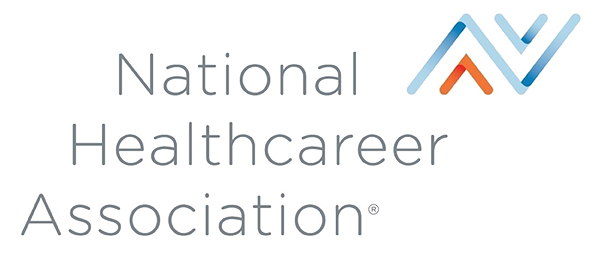According to the Bureau of Labor Statistics, overall employment in healthcare occupations is projected to grow 13% from 2021 to 2031, much faster than the average for all occupations; this increase is expected to result in about 2 million new jobs over the decade. In addition to new jobs from growth, opportunities arise from the need to replace workers who leave their occupations permanently. About 1.9 million openings each year, on average, are projected to come from growth and replacement needs.

This 100% online course will prepare you for a career in healthcare as a medical administrative assistant and medical biller and coder. By course completion, you will be ready to pass the Certified Medical Administrative Assistant (CMAA) national certification exam offered by the National Healthcareer Association (NHA) and receive a voucher that covers the fee of the exam. You will also be able to choose a voucher for the medical billing and coding certification that best aligns with your interests and career goals. You will have three medical billing and coding certifications to choose from: Certified Professional Coder (CPC, AAPC), , Certified Coding Associate (CCA, AHIMA), or Certified Billing and Coding Specialist (CBCS, NHA).
WHAT DO MEDICAL ADMINISTRATIVE ASSISTANTS DO?
According to NHA, medical administrative assistants primarily work in the “front office” of a medical practice or healthcare facility. Their duties may include coordinating practice correspondence, maintaining files and scheduling appointments.
DO MEDICAL ADMINISTRATIVE ASSISTANTS NEED CERTIFICATION?
The healthcare environment operates on the basis of professionalism, precision and dedication to patient welfare. Medical assistant certification may be required for many jobs. Earning a CMAA establishes a medical assistant as a caring, responsible professional who has undergone a study and assessment program to validate their credentials.
IN WHAT FACILITIES DO MEDICAL ADMINISTRATIVE ASSISTANTS WORK?
Medical assistants commonly work in medical practices, such as physicians' offices, outpatient clinics, and other healthcare facilities, according to the BLS.
WHAT IS THE DIFFERENCE BETWEEN BEING A MEDICAL ASSISTANT AND A MEDICAL BILLING AND CODING SPECIALIST?
Essentially, these are two distinct skill sets used within a healthcare setting. However, the responsibilities of a medical assistant may include medical billing, medical coding or both. Similarly, medical billing and coding specialists may have their own job titles or may have their title combined with a medical assistant or medical administrative professional designation.
WHY SHOULD MEDICAL ASSISTANTS LEARN MEDICAL BILLING AND CODING?
The healthcare field offers one of the leading areas of opportunities for career growth today. Within healthcare, specialized medical assistants are among the most in-demand professionals. Matching office administration skills with medical billing and coding opens up more opportunities in both general healthcare administration and specialized medical services.
WHAT ARE THE REQUIREMENTS FOR A MEDICAL BILLING AND CODING CAREER?
Entry-level positions typically require completion of a certificate and passing one of the certification exams or an associate degree program in medical billing and coding. Additionally, medical billing and coding professionals must understand the Health Insurance Portability and Accountability Act (HIPAA).
WHAT IS THE DIFFERENCE BETWEEN CERTIFICATION EXAMS (CPC, CCA, AND CBCS)?
Obtaining a CPC, CCA, or CBCS certification implies that an individual has met competencies in the field of medical billing and coding. Certification is invaluable to the student's career goals. Students have an opportunity to make confident, informed decisions about the national certification they prefer. Please see certification descriptions below:
The Certified Professional Coder (CPC) exam is offered by the American Academy of Professional Coders (AAPC). It is the gold standard entry-level coding certification for physician, or professional fee, coders.
The Certified Coding Associate (CCA) is offered by the American Health Information Management Association (AHIMA). It is an entry-level medical coding certification across all settings--physician practices and inpatient hospital.
The Certified Billing and Coding Specialist (CBCS) is offered by the National Healthcareer Association (NHA) and is currently an entry-level medical billing certification for physician practices. The exam is an entry-level billing and coding certification, with the inclusion of ICD-10-CM, CPT, and HCPCS Level II testing.
Course Objectives
Curriculum
Nancy Smith
Nancy Smith has over 30 years of experience in the healthcare industry. Her clinical experience includes working as a medical assistant for a network of rural health clinics, and as a medical coder, insurance claims specialist, and medical records auditor. She worked as a medical office manager for ten years, where she recruited and trained all medical assistants. Nancy holds a bachelor's degree in vocational education and has developed and taught medical assistant programs.
LaTisha Cottingham
LaTisha Cottingham has over 20 years of experience in the healthcare industry. She has six years of teaching experience in the field of medical billing and coding and Medical Assisting. Currently she is employed as an HIM Analyst for a long-term care establishment that is based out of Alabama.
Carline Dalgleish
Carline Dalgleish has worked in medical office administration for over 30 years. She holds a bachelor's degree in Business Information Systems, a master's degree in Leadership, and a post-baccalaureate certificate in Health Information Management. She is a Registered Health Information Administrator and an AHIMA Approved ICD-10-CM/PCS Trainer. Dalgleish is the author of an ICD-10 coding system and also owns her own consulting firm, AnnGrant Educational Services.